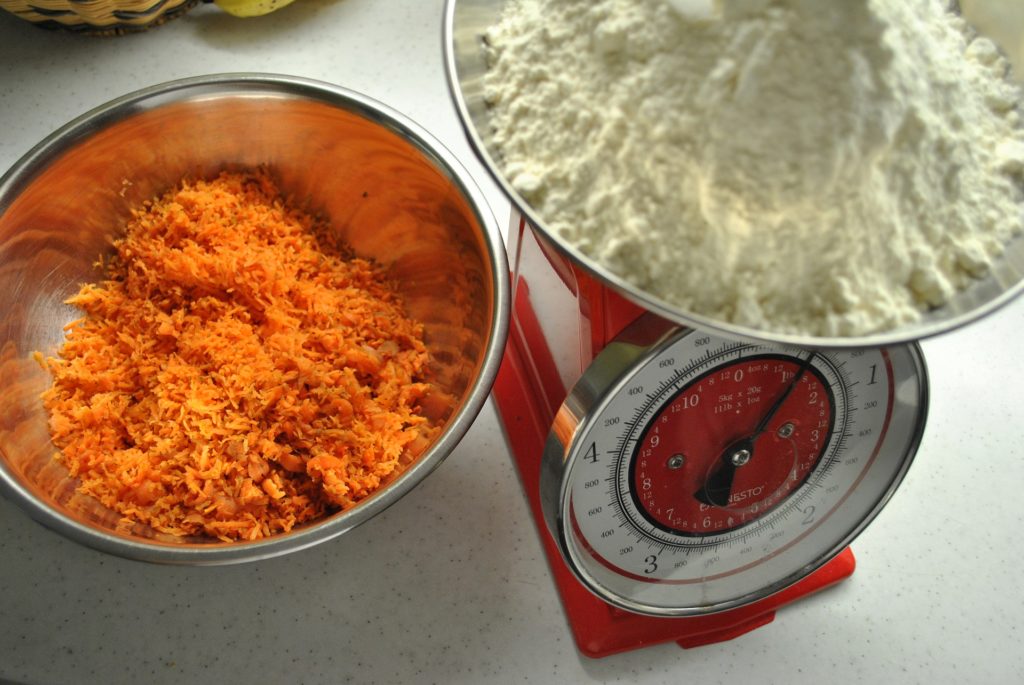When Danish wholesaler Greens Engros challenged the engineering students at the Danish Technical University (DTU) to find a way to upcycle the massive amounts of carrot waste they accumulate every month, they probably did not expect carrot flour to be the solution. Nevertheless, this innovative new product has a lot of potential for success in the current consumer market.
Greens Engros is known for their fresh-cut produce and juice products, however, their operations produce around 100 tons of biological waste every month. This waste is usually turned into compost or biogas.
However, if Greens Engros invests in converting their carrot waste into carrot flour like the students of DTU did, the company may be able to generate another source of revenue. The prototype carrot flour was made by collecting carrot pulp, draining out the access water, drying the pulp at 650 degrees Celsius and then grinding the dried carrots into a powder. By replacing 35 percent flour with this carrot flour, DTU students were able to bake a golden colored bread that had more nutritious properties.
The bread had a similar texture and structure to traditional bread and had a neutral taste with a hint of carrot, according to Timothy John Hobley, associate professor at DTU’s National Food Institute. Hobley told Food Navigator that the carrot flour can potentially be used in other applications such as plant-based foods and meat alternatives. Additionally, Hobley claims that this production process can be used on other vegetable pulps as well, such as onion and broccoli, to create more veggie-based flour products.
Greens Engros plans on using the excess heat that is produced by their refrigerator cooling systems to dry their veggie-flour products. This means that the company would be able to produce carrot flour almost for free. This easy and cheap production process allows the company to market their veggie flour products at competitive prices.
Additionally, this innovative process provides a solution to the significant amount of produce waste that the food industry accumulates every year. It is estimated that roughly one-third of the food produced in the world gets lost or wasted, which is why upcycling solutions are gaining more momentum in the food space as consumers continue to demand sustainable products.
Recently, there has been a surge in start-ups in the food industry that promote upcycled products. San-Francisco-based startup ReGrained has been marketing to environmentally conscious consumers with their upcycled nutrition bars made with beer brewing by-products. Tyson Foods also recently joined the upcycling trend with the launch of their line of upcycled protein-crisp products called Yappah!, which are made from upcycled chicken trim and upcycled carrot and celery puree. New York-based startup Rise is also known for upcycling beer byproducts into a sustainable and nutritious flour.
These startups are catching a lot of attention in the media for their sustainable practices because the current consumer demographic is known to appreciate sustainable food products.
Another trend that Greens Engros could tap into is the veggie-crust trend. Cauliflower crust pizzas are now available under popular brands such as Kraft Heinz, Pizza Pizza, Trader Joe’s and Caulipower. This is because consumers appreciate the fact that cauliflower crusts are much more nutritious and lower in calories, fat and carbs than traditional grain-based pizza crusts. This demand for cauliflower does not stop at pizza crusts; the food industry is now saturated with a variety of cauliflower-based alternatives such as buffalo cauliflower “wings,” cauliflower rice and cauliflower “steak.”
With carrot flour being high in nutrients such as beta-carotene, the product has a lot of appealing qualities for millennial consumers who look for nutrient-dense foods. Although Greens Engros is still currently in the development phase of this new carrot flour product, it is likely to attract the attention of many consumers when it hits the market.












Join or login to leave a comment
JOIN LOGIN